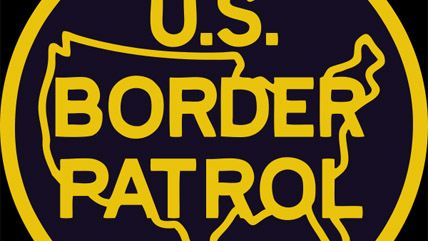How Immigration Reform Will Harm U.S. Citizens
E-verify means new restrictions on both immigrants and citizens.

If immigration reform passes, life will get tougher for foreigners who want to come here illegally. Those trying to sneak in will face more agents, fences and drones. Those who slip through will find it harder to get work—thanks to a mandatory system to verify the legal status of all new hires.
But they'll have company in their misery. It may not have occurred to those who support stricter enforcement that the new system will affect anyone applying for a job. Under the proposed legislation, you will not be able to take employment without explicit federal authorization.
The online system, known as E-Verify, currently lets employers check that new employees are legally allowed to work in this country. Some states already mandate its use. But the immigration package now in the Senate would make it compulsory nationwide for every employer.
How would it work? When you get a new job, you'd have to provide your name, Social Security number and one or more documents to show that you are who you claim to be—such as a passport or a driver's license.
The employer would then enter the information, which goes into the E-Verify system to be compared against government records. If your documents appear to match, you would get permission to work. If not, you would get a "tentative non-confirmation" indicating that you don't qualify.
That may sound simple and painless for anyone who is here legally, and usually it is. But not always. In 2011, the federal Government Accountability Office reported that about one in every 400 submissions results in an erroneous disqualification.
Emily Tulli, an attorney with the National Immigration Law Center, estimates that in 2012, based on the apparent error rate, "160,000 workers had to contact a government agency to fix a database error or risk losing their jobs." Once every new employee has to go through E-Verify, the number will multiply.
The index of those deemed ineligible is the equivalent of the federal "no-fly" list, which has mistakenly barred infants and U.S. senators, as well as many people who were never told why they are excluded. But a "no-work" list is obviously far worse.
Most of us can manage to find food and shelter without ever getting on an airplane. Doing so without a job is not so easy. Those deprived of the opportunity to make a living would include a lot of native-born citizens as well as many people who were born elsewhere but have come here legally.
The victims can always challenge the decision, of course, but the burden is on them to prove their eligible status to some federal bureaucracy. It can take weeks or months to correct an error. In the meantime, the employer may decide the unfortunate applicant is too much trouble and hire someone else.
"A survey of immigrant workers in Arizona found that a third were fired immediately after receiving a tentative non-confirmation," says the ACLU, "and not one was notified by the employer that they had the right to appeal the E-Verify ruling—even though that notification is required." So even if the problem is fixed, the damage is done.
It would be bad enough if the immigration bill merely compelled universal use of E-Verify. But it creates another requirement that carries ominous potential. It mandates the use of a new means of verifying identity. Virtually everyone would have a photo in the federal archive, and it would be compared with the photo on the identification you provide, to confirm you didn't steal someone's identify.
Here, skeptics fear, there is more than meets the eye. They regard this provision as a big step toward a national ID card that would be essential for everyone. By requiring a government-approved photo ID to be used for verifying identity for purposes of employment anywhere in America, the measure may effectively create a national ID system—even as it disavows any such purpose.
Once it has become common for employment, its use could easily expand. Why not use it for voting? For gun purchases? For boarding an airplane? For access to unemployment insurance or other government programs? Social Security numbers originally were not supposed to be used for identification—yet today they are, all the time.
This new approach may or may not contribute to discouraging illegal immigration. But it's pretty certain that in the end, our sphere of privacy and autonomy will shrink, and government power will grow.

Show Comments (27)